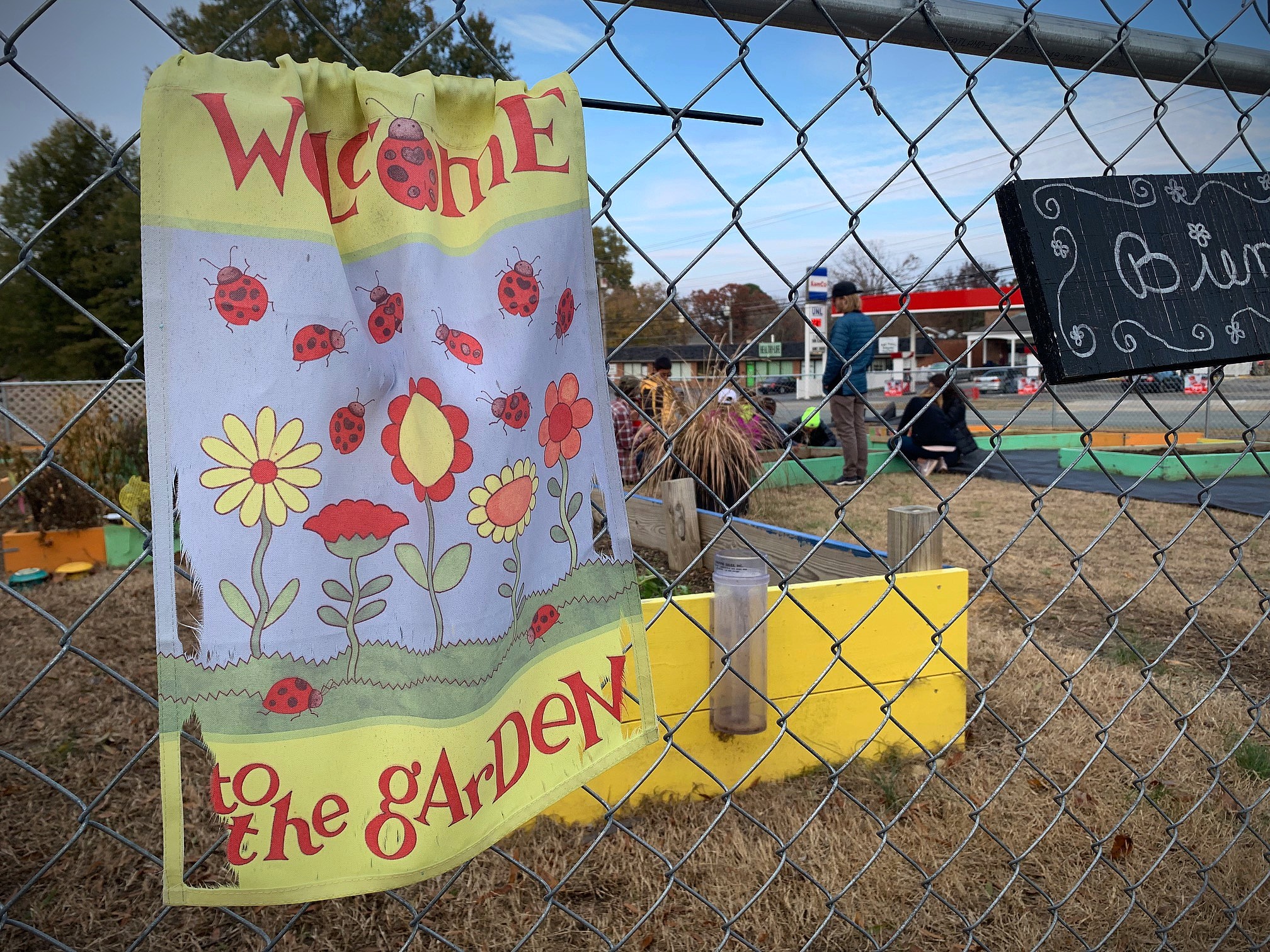The $4,000 Community Partnership Initiative Grant not only helped students at Eastlawn Elementary School in Burlington, North Carolina, expand their school's garden, but it also helped teach valuable lessons.
After the final bell of the school day, the real work begins for students in the Eastlawn Elementary School Garden Club. On one particular Tuesday in November, students worked alongside Elon University students to expand their garden.
The 30-foot expansion was made possible by a $4,000 Community Partnership Initiative Grant from Elon’s Kernodle Center for Service Learning and Engagement. The CPI grant provides teams of faculty, students and community agencies financial support to launch collaborative projects like the expansion of the Eastlawn garden.
Associate Professor of Education Scott Morrison applied for the grant last spring to help grow the garden at the Burlington, North Carolina, elementary school. It’s a place that’s offered countless opportunities to impact local students.
“To put time and energy and love into kids in this community is so important,” Morrison said as he watched about 30 third-, fourth- and fifth-graders working in the garden.

The garden serves as an outdoor classroom for Eastlawn and Elon students. Morrison teaches a course in the fall and another in the spring during which Elon students spend most of their class time working in the Eastlawn garden.
In the fall, Morrison teaches EDU 431: Environmental Education, which meets every Tuesday and Thursday. On Tuesdays, students work side-by-side with Eastlawn’s Garden Club, a time both groups look forward to each week.
“It fills my heart up so much,” said Savannah Kile ’21, a biochemistry major. “As soon as we get here, the kids come up and give us the biggest hugs.”
The Elon course gives students a hands-on learning experience focused on the foundational principles, emerging trends and best practices in environmental education.
“It’s unbeatable,” said Andrew Kerr ’20, who majors in adventure-based learning. “This is truly the definition of learning at Elon. It feels very meaningful to me because I’m able to help out the kids in the surrounding areas.”

The garden began in 2017 as an idea from Eastlawn teachers Sarah Waddell and J’Taime Lyons. The two applied for a $20,000 Teacher Leadership Academy grant to open an edible school garden at Eastlawn, which is located in the heart of a food desert. For nearly three years, Eastlawn students have planted, grown and harvested fruits and vegetables like cabbage, Brussels sprouts, apples, blackberries and many other items in their garden. Waddell says the goal was not to just hand out food to students, but to teach them valuable lessons as they grew their own food.
“When you are actually getting to harvest things and have the students enjoy the strawberries, enjoy the kale, take home food, and their parents inquire about how to prepare it or tell you how much they enjoyed having it around the table, those moments are really powerful,” Waddell said.
Morrison first partnered with Eastlawn Elementary for his course around the time the school began its Garden Club. Along with lessons on experiential learning, Morrison saw another purpose for his courses: breaking down barriers between communities.
Eastlawn is a Title I school located minutes from downtown Burlington. Morrison says a key theme of his garden courses is shifting student perspectives about people and places that might seem different to them.
“It’s humbling,” he said. “It’s important to not just be secluded to Elon, but to also be in the community.”

On the final trip of the semester for the EDU 431 class, Elon and Eastlawn students worked to expand the garden, reinforcing wooden planters and planting 11 fruit trees, six blackberry bushes and three grapevines. Those tasks brought lessons in math, science and communication for both groups of students. But, for elementary education major Abbi Decker ’21, working with the young students in the garden is also a chance to apply what she’s learned in the classroom.
“The ability to have this experience one on one, doing the things I’m learning about in an actual experiential setting is really unique because you can learn all kinds of theory, but if you don’t get to actually practice with the kids, then you don’t really know how to teach it,” she said.
The learning opportunities aren’t only reserved for Elon students. Morrison also hosts workshops for Eastlawn teachers on how to incorporate the garden into their lessons.
Plans are currently in the works to expand the garden’s teaching potential. The school recently received a $5,000 Farm Credit grant to build a kitchen in the garden. Morrison hopes to also obtain funding to one day build a greenhouse on the property.
For Elon students like Lindsay Carter ’20, it’s exciting to know that the garden and its future upgrades will continue to enhance the learning experiences of Eastlawn and Elon students for years to come.
“Just being able to work with these kids and see the hope and joy in their eyes, it just means everything to see that future generations are caring and learning,” she said.



